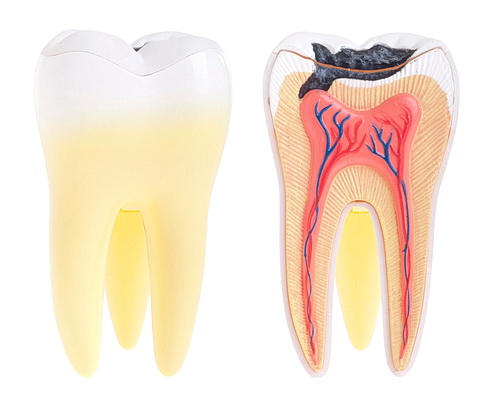Anyone who has brought their child to the dentist knows it’s not a pleasant experience, neither for the child nor for the parent.
Unfortunately, cavities in children are as common as the seasons. As a parent, knowing some of the common dental issues can help you identify potential problems and improve the oral health of your children. Let’s take a look at what these dental issues are.
Tooth Decay
During these early years of discovery, children often tend to try foods and stick to habits that are certainly not good for their oral health. The gummy candies, sweets, ice cream, irregular brushing, and missing visits to the dentist all lead to oral health problems.
Tooth Decay is one of the most common dental problems in children. Around 20% of children in the US between the ages of 5 and 11 suffer from tooth decay. And the untreated and persistent condition continues well into adulthood for 13% of adolescents. In Australia, the problem is much more severe. There, half of all 12-year-olds have decay in their permanent teeth. This dental problem accounts for more than hundreds and thousands of lost school days throughout the world.
Tooth decay is caused by poor oral hygiene. This includes irregular brushing as well as not seeing a dentist regularly and eating carbohydrate-rich diets which include soda, juices, and canned fruit. All these factors allow a certain type of bacteria to thrive in the mouth. As a result, a sticky build-up known as plaque builds up in the mouth. Over time, when exposed to food, plaque produces acid which erodes the outer layer of the tooth (known as enamel). Eventually, the inner layers of the teeth continue to get affected by the plaque, which gradually leads to tooth decay.
On a positive note, tooth decay is a preventable condition. Proper brushing, a healthy diet, and regular visits to a dentist can help reduce the chances of a child developing this condition. It is important to brush properly twice a day with fluoride-rich toothpaste. Also, ensure that children as young as two years old floss their teeth regularly. Yes, easier said than done but worthwhile if you can get them to do it! You also need to make sure that your child avoids sugary foods, especially before bedtime, and visits a dentist at least once a year.
Bad Breath
Bad breath is another most common dental issue among adults as well as children. Often, bad breath is a result of the foods we consume. Foods with a strong smell such as garlic can lead to this. But if this is a persistent issue, it is an indication of other underlying issues.
Bad breath, medically known as halitosis, is caused by bacteria that reside in the mouth. This bacteria lives in colonies and survives on leftover food particles and plaque. As they eat food, they produce hydrogen sulfide which results in bad breath. The problem is most common in children in the morning. Since the bacteria continue to thrive at night, it results in halitosis. Sometimes, bad breath can be a result of other oral conditions such as gum problems, poor hygiene, and problems of the digestive system.
One of the best ways to prevent the problem of bad breath is regular and proper brushing. It is important to brush the tongue as well to remove the bacteria in the mouth. The use of antibacterial mouthwash can also help reduce this problem. If the problem persists throughout the day, you should get a dentist’s appointment for your child.
Tooth Sensitivity

Another common dental issue in children is tooth sensitivity. This happens when the top layer of the tooth gets damaged by the bacteria.
The top layer of the tooth (AKA enamel) helps protect the inner parts of the teeth and nerves from getting damaged. When the enamel gets eroded by bacteria, it can expose the inner parts and nerve endings of the teeth. As a result, the tooth becomes more sensitive to cold and heat. If a child has tooth sensitivity, hot and cold food will cause irritation and discomfort. But in more severe cases where teeth are extremely sensitive, even breathing in hot and cold air can cause pain.
While anyone, regardless of age, can have tooth sensitivity, the problem is more common among kids. This is because their enamel is thinner compared to adults. Also since their diet includes too many carbohydrates, it results in damage to the enamel along with a buildup of plaque. While tooth sensitivity is primarily caused by damage to the enamel, other problems such as cavities can also lead to tooth sensitivity.
Just like most other dental problems, tooth sensitivity can be treated. However, this time good oral hygiene practices alone won’t help much and you will need to see the dentist. Dentists often recommend the application of a fluoride sealant to the teeth. This helps reduce sensitivity and strengthens tooth enamel. Also, it is recommended that children use a toothbrush with soft bristles. Using a toothbrush with hard bristles can damage the surface of the teeth over time.
Keeping Your Child’s Teeth Healthy
The solution to all dental issues in children lies in maintaining oral hygiene and visiting dentists regularly. Regular brushing and other oral hygiene practices such as flossing and the use of mouthwash will help keep dental problems to a minimum. But in case something arises, a visit to the dentist can certainly allow you to diagnose and treat any potential dental problem and set up your child’s teeth for a healthier future.

